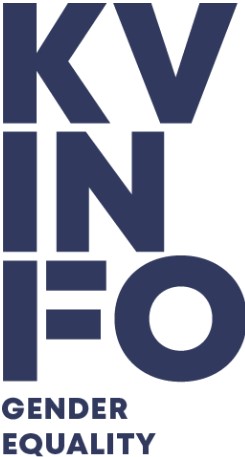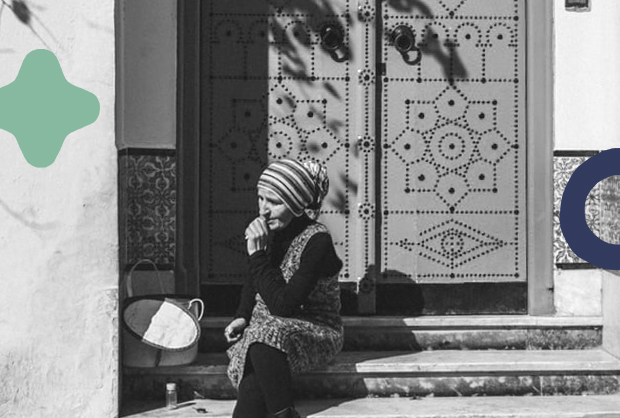Today marks ten years since the Arab Spring began when Mohamed Bouazizi, a 26-year-old fruit vendor, set himself on fire in Tunisia. He supported his family with just a few dollars of earnings a day. This is bad enough in itself. However, on top of that, Bouazizi felt angry and powerless because he did not believe that the then government had any interest in helping him and other “ordinary” Tunisians.
Bouazizi later died from his injuries, but by then thousands of Tunisians had taken to the streets in protest against the same inadequacies that the poor street vendor pointed out in the most dramatic way imagineable.
And so began what we now call the Arab Spring: the popular protests against autocratic presidents, corrupt governments, repression, poverty, as well as inequality affecting areas such as law, standard practice and everyday living for millions of civilians.
KVINFO’s work in Tunisia
KVINFO works for gender equality in Tunisia together with three Danish and four Tunisian organisations.
Their work serves multiple purposes. First, it aims to promote women’s participation in political life, including empowerment. Next, it combats gender-based violence, strengthens sexual and reproductive rights, and raises awareness of LGBT+ rights.
The Danish partners are: Danner, Sex og Samfund, LGBT+ Danmark.
The Tunisian partners are:
Mawjoudin, which is an LGBT+ organisation.
LET (Ligue des Électrices Tunisiennes), an association of female politicians and voters.
ATSR (Association Tunisienne de la Santé de la Reproduction), which works to ensure reproductive rights.
AFTURD (Association des Femmes Tunisienne pour la Recherce sur le Développement), which works to combat gender-based violence.
Pioneer country
Since then, Tunisia has been at the forefront of the battle for gender equality in countries across the Middle East and North Africa.
Not only was gender equality written into the new constitution and adopted in 2014, which has since been called an exemplary model to inspire other progressive nations to do the same.
Tunisia is also a global pioneer with regard to legislation affecting victims and survivors of violence, which criminalises not only economic, psychological and physical violence, but also political violence. This is of great importance to politically engaged and ambitious women who face harassment and obstruction from the conservative wings that remain influential in the North African country.
New progressive electoral law
The reformed electoral legislation is also characterised as progressive in terms of gender equality.
For example, 47% of the seats in Tunisian city councils were held by women after the last local elections in 2018. For example, this means that Denmark has been surpassed by Tunisia: In the Danish municipal elections in 2017, 33 percent of council seats were filled by women.
Tunisian electoral law does not provide for quotas, but for so-called “parity” both horizontally and vertically. In practice, this means that parties nominate men and women alternately on electoral lists, which is referred to as vertical parity, and that half of a party’s leading candidates must be female, which is defined as horizontal parity.
LGBTQ+ and money
However, it is perhaps two other areas that have really underlined the pioneering position Tunisia has enjoyed for several years: the country’s relatively positive attitude towards LGBTQ+ rights and a proposal for equal inheritance rights regardless of gender, which is an unprecedentedly bold proposal in a Muslim context.
Article 230 of the Tunisian Penal Code – often referred to as the “sodomy article” – does indeed prohibit “unnatural sexual intercourse”, which judges may interpret as non-heterosexual.
Yet, in 2015, Tunisia’s LGBTQ+ community was able to organise and hold a Pride march in the capital Tunis – with the permission of the authorities. As expected, this caused a stir and a great deal of excitement, also among rights experts and activists with other areas of focus.
Decriminalisation of homosexuality
In fact, it reverberate even more two years ago when a long-awaited report recommended decriminalisation of homosexuality. This was not just any report. The report was the culmination of two years of work by the prestigious the Individual Freedoms and Equality Committee (COLIBE), set up by the President to oversee all potential gender inequities embedded in Tunisian law.
The COLIBE report has since become a historic document in many circles as it is the first report to include LGBTQ+ rights in gender equality issues. While Section 230 is still in force, the fact that such a serious forum dealt with homosexuality at all was and still is seen as an achievement.
Highly charged inheritance law
Another reform measure that has attracted attention and has also failed to materialise is a proposal for a new law on the rights of men and women in matters of inheritance.
The proposal erases the current gender discrimination in inheritance law, which gives brothers priority over sisters to inherit family possessions, ranging from money to property and land.
Equal inheritance is a highly charged legal issue seen from several perspectives. Partly because this idea goes against the Sharia rules of inheritance law, which favor brothers. Partly because inheritance may reduce economic gender inequality in Tunisia.
Setbacks and concerns
The new inheritance law has been presented to the parliament in Tunis and may not be adopted anytime soon.
An economic crisis, terrorism and a new composition of the parliament have led activists, experts and observers to raise concerns about the current and future state of gender equality in Tunisia.
In 2019, a new president, Kais Saied, came to power and spoke out against homosexuality during his election campaign.
“These are retrograde steps,” Fatma Øtkem, MP for the Danish Liberal Party, Venstre, said at the time and after visiting KVINFO’s partner, LET (Ligue des Electrices Tunisiennes).
Danish-Arab Partnership Programme
KVINFO’s programme in the Middle East and North Africa is supported by the Danish Ministry of Foreign Affairs’ Danish-Arab Partnership Programme, DAPP.
“It is alarming”
The Director of LET, Besma Soudani, was also concerned:
“It is alarming. This is a difficult and challenging time for Tunisia,” she said.
KVINFO’s international director, Lene Steffen, is equally concerned about the future:
“Tunisia is in a situation where it will have to work for further improvements in gender equality. However, it is equally important to make sure to hold on to what has already been achieved, otherwise it may disappear,” she says.


